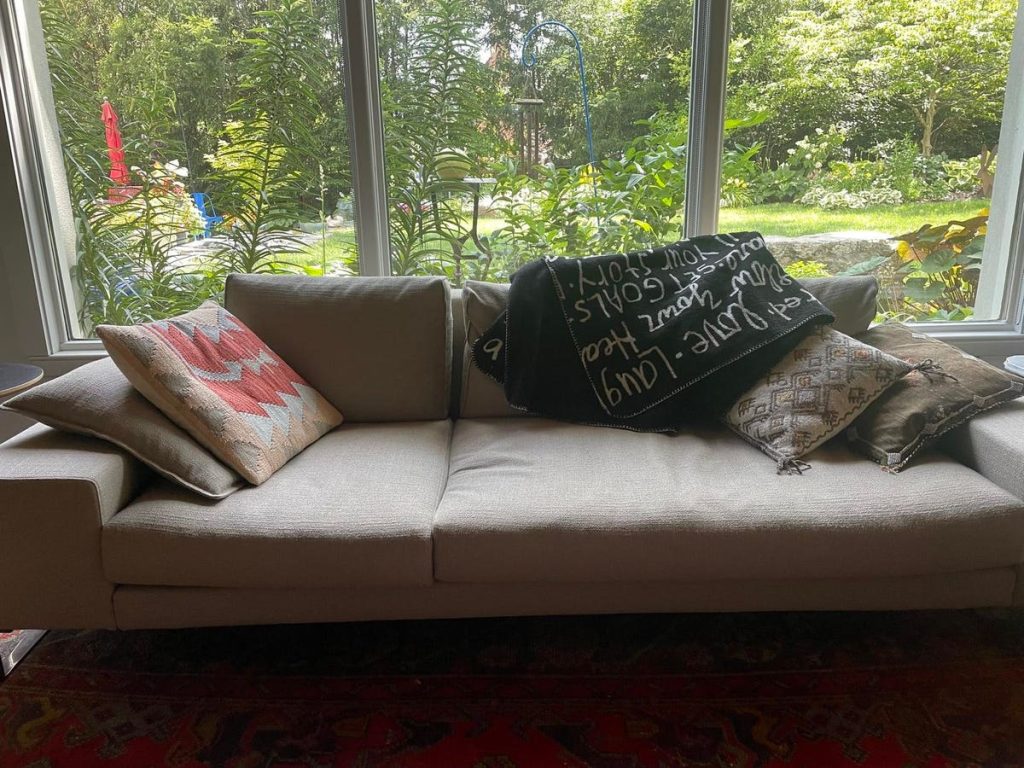Do you have a friend who you could call in the middle of the night? Or even help you move a couch? In my book Breadcrumb Legacy: How Great Leaders Live a Life Worth Remembering (Routledge), I challenge readers to think about who they could call to help them move a couch when thinking about adult friendships. Since most of our friendships often emerge from work, we can lack a social network when we leave the workplace.
It started a few years ago, when all three of my adult sons were in college, my husband asked me to help him move the couch to a different room. I started to do it, and then asked, “Don’t you have someone you could call? A friend to help you?”
My husband said he didn’t want to bother anyone. I said, “If you weren’t here, I would find someone to help me move the couch.” It turned out he couldn’t think of a single person he felt comfortable to ask.
“You need to make more friends!” I told him. And he didn’t get offended. He agreed.
My husband isn’t alone. In a major national study of Americans’ social networks in 2020 discovered that nearly one in five Americans reported having no close social connections, a double-digit increase from 2013. The Associated Press conducted a survey recently found that 18 percent of the public had no more than one person outside their immediate household they could turn to for help.
According to Joseph Coughlin, the Director of the Massachusetts Institute of Technology AgeLab, the focus on financial security for retirement planning is incomplete. He says our real social security “is not an income stream provided by the government, but by our social relationships – our friends.” We worry about the money we think we need to have in order to retire. But Coughlin says we should be considering “the social capital (friends) we will need to remain connected, engaged, to have fun, and to manage the many challenges older age will bring.”
When’s the last time you made a friend? Not just someone you see at work, or someone who is an acquaintance – a real friend. What makes a real friend? I think it’s someone you trust and on whom you can depend. You can call them in the middle of the night. True friends have your best interests at heart. Having a support group of friends is our “connection protection” for being strong and resilient.
Friendships are relationships and they take time, money, and energy to maintain. Often scarce resources. If we understand the value friendships play in our lives, it’s an investment with great payoffs in terms of happiness and meaningfulness.
About 20 years ago, I was going to Charleston, North Carolina for a national professional teachers’ conference. I had never been to Charleston, but my husband had been at a tennis tournament there a few months before my conference and insisted I go to a particular restaurant.
I had been attending this conference for a few years so I had met other faculty members. Ironically, none of them were attending that year. I honestly did not know anyone.
I decided to “lean into my fear.” I made reservations for six people at this restaurant. After each workshop I attended, I would ask a person or two (who seemed interesting) if they would want to join me for dinner. A few people said they had plans, but I just kept asking. Then one said yes and asked if she could bring a friend.
At the end of the day, I had to increase my reservations to 10. And I only did this because I didn’t want to eat alone at a nice restaurant. Interestingly, the next year some of these people asked me if I was going to plan a dinner again—and I did!
To practice what I preach, my neighbor and I decided to co-host a cocktail party for our neighbors whom we really don’t know. I handwrote invitations and personally delivered them. One of our neighbors has a large yard and long driveway. There was a man filling up leaf bags at the end of the driveway. I stopped my car and said, “Sir, can you give this to the people who live here.” He replied, “I live here!” I was embarrassed. “Oh, I figured you hired someone to mow the lawn. Well I’m holding a party, and this invitation is for you! We want to get to know our neighbors and I clearly don’t know you.”
He and his wife came to the party. His wife shared that he looooooves to mow the lawn and do all of the lawncare himself.
What happened to my husband and his lack of move-the-couch level friends? In his case, he loves to read so I encouraged him to start a men’s book club. He could invite a couple of friends and ask them to each invite two others.
The book club has been meeting for several years and has grown to 12 members. And now my husband has many people who would happily help him move the couch. Making and maintaining connections with others has benefited every aspect of his life.
It is time to think of “wellness” not as something you personally do by yourself, but rather rethink wellness as “social wellness,” which is how your community and connections help to support your health and well-being. Making friends as a grown-up takes courage and takes practice. We have to get out of our comfort zones.
Read the full article here













